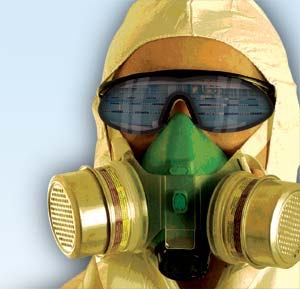Crypto is making headlines and if there’s an outbreak in your area, it’s very likely you’ll be receiving calls from reporters. The best approach is always to be proactive and honest. Following are tips for dealing with the media regarding a crypto event.
Before
• Work in partnership with public relations staffers to develop a plan for communicating with the media. Become familiar with policies for responding to reporters; provide the PR team with all relevant information on crypto and safe swimming; and designate a spokesperson. In the event of a crypto outbreak (or similar crisis), providing a knowledgeable and empathetic “public face” can go a long way toward instilling trust.
• Create an up-to-date package of background information on crypto. Include a description of proactive prevention measures in place at your pool; links to the CDC information pages and other relevant Web sites; and contact information for the spokesperson of your operation and other professionals in the industry.
• Consider hosting an annual press day. Invite the media for a tour of your facility and a firsthand look at the safety measures that are in place.
• If you’re expected to deal with the media and you’re not comfortable with the idea, consider working with your public relations partners on media training.
• Share the policies for dealing with the media with your staff. Instruct them on how they should handle calls from reporters.
During
• Contact your facility spokesperson and PR staff to notify them of the crypto event immediately. Remember, they’re there to help guide you and manage the media barrage.
• With your PR team, establish talking points and prepare a message for your spokesperson to deliver. The goal should be to instill public confidence in the safety of your pool. Be open regarding what’s going on and use dynamic, active phrasing to show that you’ve been on top of the issue and have prevention measures and safety standards in place at your facility.
• Develop and disseminate a media alert. Help the public relations staff to get the agreed-upon message out as quickly as possible.
• Remind your staff of proper protocols for handling media inquiries.
• Return all phone calls and respond to all queries promptly to ensure that reporters have ample time to meet deadlines.
• Watch local media for signs of misinformation and work to correct it as quickly as possible.
After
• Develop a follow-up media alert. Help the public relations team get a status update out as quickly as possible.
• Be creative. Utilize all available resources and message channels to retain public confidence in the safety of your facility/agency.
• Hold a meeting with the PR group to analyze the effectiveness of your media efforts. Was your message received on point? Could the spokesperson do a better job when talking with reporters?
Information provided by the CDC; Elise Knox, aquatic park manager, The Colony, Texas; Dave Strueber, assistant director, West Region Parks & Recreation Department, Dallas; and Ray Dunham, principal, Raymond K. Dunham and Associates.



